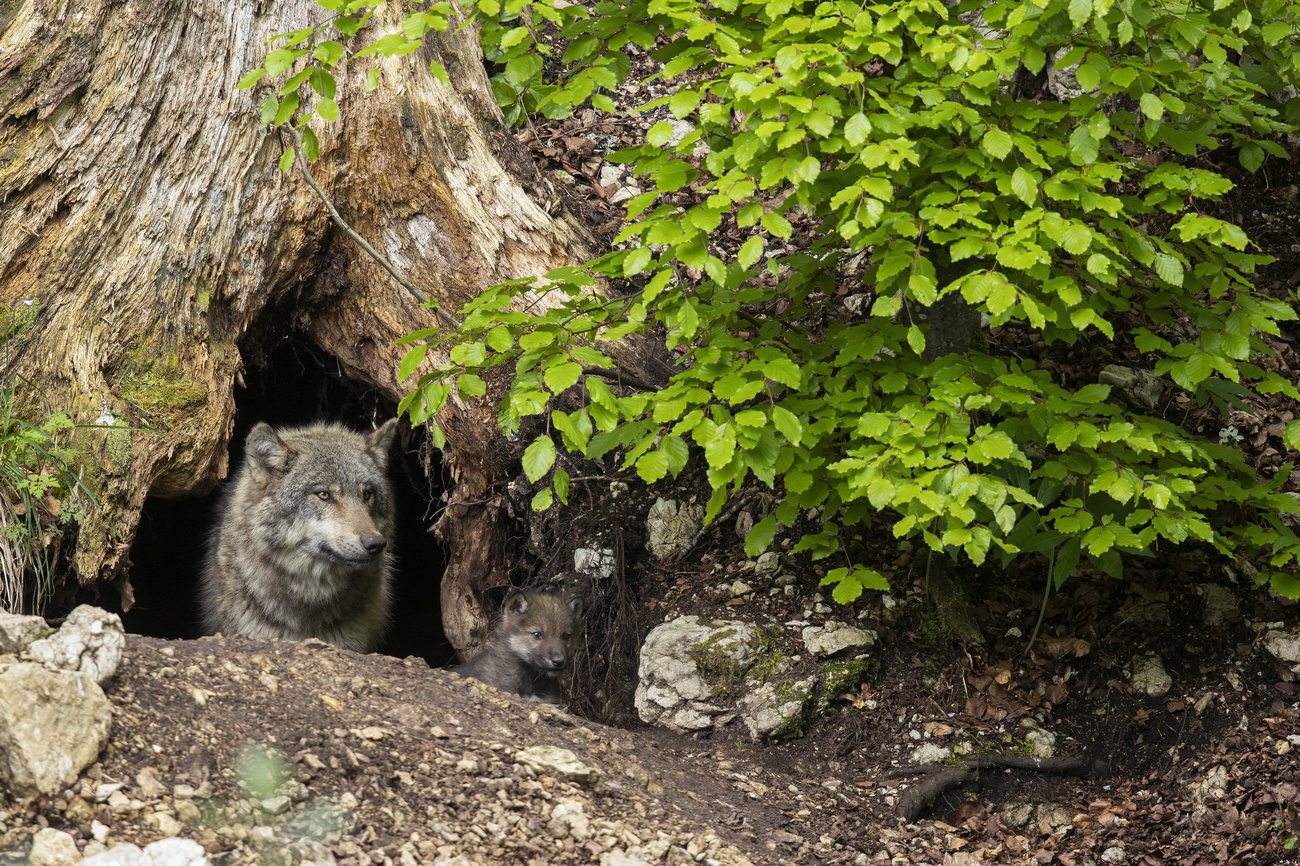
Wolves in Switzerland: more numerous but less deadly in 2023

The number of wolves in Switzerland rose from around 240 to 300 in the space of a year – while the number of livestock killed by the predator fell.
An analysis of cantonal data by the Wolf Switzerland Group estimates that a total of 1,100 farm animals were killed by wolves in Switzerland this year. In 2022, there were 1,480 livestock kills, which corresponds to a decrease in 2023 of around 25%.
David Gerke, managing director of the NGO, confirmed a corresponding report by Tamedia newspapers to the Keystone-SDA news agency on Saturday. The analysis, which he also made available to the news agency, was dated December 26 and based on cantonal data available online.
+ Read more: how many wolves should be allowed in Switzerland?
In the six Swiss cantons where wolf packs are known to live, the number of farm animals killed fell from 1,329 last year to around 950 this year. The NGO assumes that around 150 further animals were killed in cantons without wolf packs. This is the same number as last year.
According to the factsheet published by Wolf Switzerland Group, the number of livestock killed in the southwestern canton of Graubünden fell sharply, while in Valais, the number was slightly lower than in 2022. In Vaud and St Gallen the number of kills increased.
Based on figures from the Federal Office for the Environment and the Carnivore Ecology and Wildlife Management (Kora) group, Wolf Switzerland Group also says that an average of four livestock kills per wolf were recorded this year. The average in 2020 was nine, in 2022 it was six.

More
When it’s legal to shoot the wrong wolf
Appeals pending
At the start of November, the government decided that wolves could be preventatively culled from December this year – a measure to tackle the rapid and ongoing spread. Valais and Graubünden subsequently issued culling orders for a total of 78 wolves.
Three environmental organisations lodged an appeal against some of these culling orders with the Federal Administrative Court. The appeals, which are still pending, claim that the federal government and cantons are disregarding the principle of proportionality and the important role that the predator plays in forest ecosystems.
This news story has been written and carefully fact-checked by an external editorial team. At SWI swissinfo.ch we select the most relevant news for an international audience and use automatic translation tools such as DeepL to translate it into English. Providing you with automatically translated news gives us the time to write more in-depth articles. You can find them here.
If you want to know more about how we work, have a look here, and if you have feedback on this news story please write to english@swissinfo.ch.

In compliance with the JTI standards
More: SWI swissinfo.ch certified by the Journalism Trust Initiative


























You can find an overview of ongoing debates with our journalists here . Please join us!
If you want to start a conversation about a topic raised in this article or want to report factual errors, email us at english@swissinfo.ch.